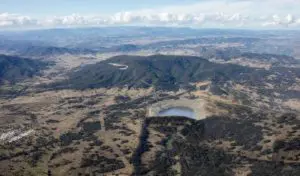The Australia Institute’s 2022 Climate of the Nation report reveals record numbers of Australians are ‘very concerned’ about climate change, as record-breaking floods and extreme weather wreak havoc across eastern Australia.
To be unveiled by former Prime Minister Malcolm Turnbull on Thursday, the report, in its 15th year running, finds a majority of Australians believe governments are not doing enough to prepare for and adapt to the impacts of climate change.
According to the report, 75% of Australians surveyed are concerned about climate change, with the number of those reporting ‘very concerned’ trending upwards year on year.
Some 83% of those surveyed are concerned climate change will result in a higher frequency of both droughts and flooding, which would damage food security, as well as a higher frequency of bushfires.
Some 79% support a phase-out of coal-fired power stations, and a (small) majority (57%) support Australia following the IEA pathway to not approve any new gas, coal or oil projects.
When surveyed on policy, 80% agreed that climate impacts should be considered by the Environment Minister when approving future fossil fuel projects (this policy, known as a ‘climate trigger’, was put forward by the Greens in a new bill in September).
The report also found that 61% of those surveyed actively support a windfall profits tax on the oil and gas industry, and just a fifth of those surveyed oppose it.
Windfall taxes have been widely proposed as a way to manage the growing energy crisis and stop fossil fuel companies from raking in record profits.
In September, European Commission President Ursula von der Leyen announced that the EU planned to raise €140 billion from energy companies’ profits to soften the blow of record energy prices this winter, though the UK and Australia both notably refused to raise taxes on oil companies in recent months.
Interestingly, the report finds that support for a windfall profits tax on energy companies spans demographics, with majority support across ages, states, genders and voting intention demographics.
“As flood waters continue to rise at record levels, so too does the number of Australians worried about climate change impacts, with concern over floods at record highs,” said Richie Merzian, Director of Climate & Energy for the Australia Institute.
“The Climate of the Nation report shows Australians are fed up with the mismanagement of the country’s natural resource wealth and want a windfall profits tax on the gas industry and a levy on our fossil fuel exports to help pay for climate related disasters.
“Australians are dealing with the high-cost consequences of relying on gas and coal power and three quarters want the government to step in and plan the shift to renewables and storage.”
The report also makes some interesting findings around public perceptions of the fossil fuel industry’s role in Australia’s economic life.
It finds that Australians overestimate the oil and gas industry’s proportion of the national employment force 58-fold: while Australians on average believe oil and gas employs around 10% of the nation’s workforce, it actually employs just 0.2%.
Similar data holds true for coal mining: while Australians on average believe coal mining makes up 10% of the workforce, the true proportion is 0.3%.
“Australians continually overestimate the economic value and jobs in the gas and coal sector, and despite this, the majority still want to stop new gas and coal mines and three quarters want a well-planned and coordinated phase out of coal mining,” says Merzian. “Yet perversely there are over 100 new gas & coal projects in the pipeline in Australia.”
When it comes to fossil fuels and taxation, the report found that the public massively overestimates the contribution the Petroleum Resource Rent Tax (PRRT), the main way the Federal Government collects revenue from oil and gas exploration, makes to the Federal Budget: while those surveyed believed it contributed 11% of the budget, it actually contributed just 0.3% in the 2021-22 financial year.
Just 14% of those surveyed believe taxpayers should pay the costs of responding to climate change, compared to 48% who say fossil fuel companies should shoulder the financial burden. Just 6% support using taxpayer funds to subsidise new coal mines.
The report also surveyed the public on the transport sector’s contribution to climate change. 79% of those surveyed say they support a long-term strategy to provide vocational training to ensure there is a skilled workforce for the manufacturing of EVs. 75% support electrifying state bus fleets by 2030, and 68% support the introduction of national fuel efficiency standards in line with those in Europe.
“The Australian Government has a clear mandate to do more when it comes to climate, in particular, clean transport,” says Merzian.
“The upcoming electric vehicle strategy is an opportunity to get moving on fuel efficiency standards, targeted electric vehicles subsidies, and a phase out of fossil fuelled vehicles – all of which have strong public support.
“Australians want more than just the replacement of fossil fuelled cars with electric vehicles. They believe the government should help shift away from car use towards public transportation, cycling and walking.
“They want better infrastructure for active transport, subsidies for e-bikes and cargo bikes, and an all-electric Australian bus fleet.”







